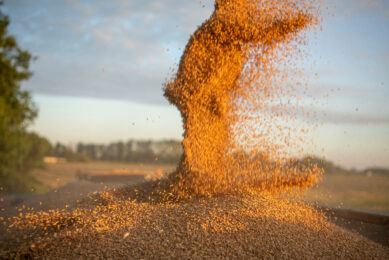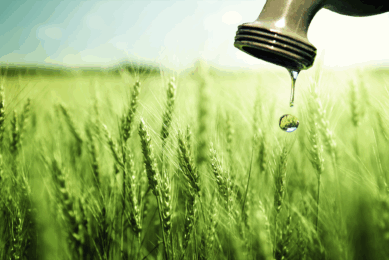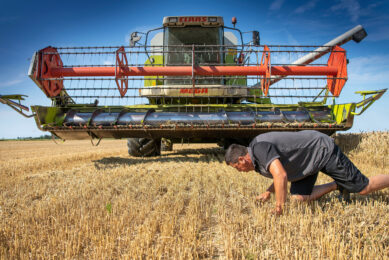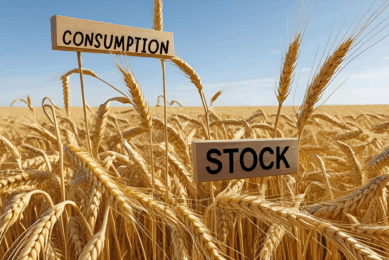Summer rains disrupt wheat harvest
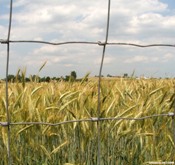
The wheat harvest for most Western members of the EU bloc is virtually over, but more rain is preventing German and British farmers from gathering the last of their crops.
Freak summer weather, which has included dramatic swings from hot to cold in
countries like Italy, has taken its toll on quality, with questions raised over
how much of this season’s wheat can qualify for human, rather than animal,
consumption.
This, coupled with sharp downward revisions in particular
for Eastern Europe’s likely wheat production, will remain supportive for wheat
prices which have, in Paris, rallied over 80% since early April.
More
feed wheat
“We will end up probably with a greater supply of feed wheat
than milling wheat,” said James Dunsterville, an analyst with Agrinews in
Geneva.
Still, tight wheat supplies in Europe did not represent a great
problem given that the bloc could turn to other countries to import better
quality grain, he said.
Everyone from food manufacturers to livestock
firms and consumers are feeling the pinch as prices soar, raising concerns that
this will feed through into higher inflation in Europe.
Last week on
Thursday, Paris-traded new crop futures hit a new record at € 241.50 a
tonne.
French and German harvest down
The difficult weather has
led to estimates for France’s wheat output being cut to 32.5 million tonnes,
according to domestic grains agency ONIGC, but some players expect the number to
dip below 32 million tonnes. Last year, France produced 33.3 million tonnes of
wheat.
In Germany, relentless rains during the critical harvest period of
July and August meant that the nation’s wheat crop would probably fall to
between 20 and 20.3 million tonnes this year, down from 22.4 million tonnes in
2006.
Quality down
Quality generally fared well in south
Germany, but rain damaged wheat in two of the largest wheat-growing areas of
Lower Saxony and Schleswig-Holstein where harvesting is nearly over. A larger
than usual proportion of Germany’s wheat crop would probably only qualify for
animal feed, analysts said.




